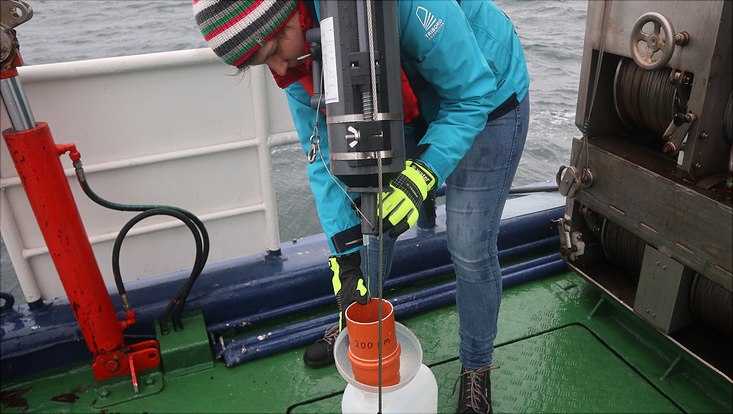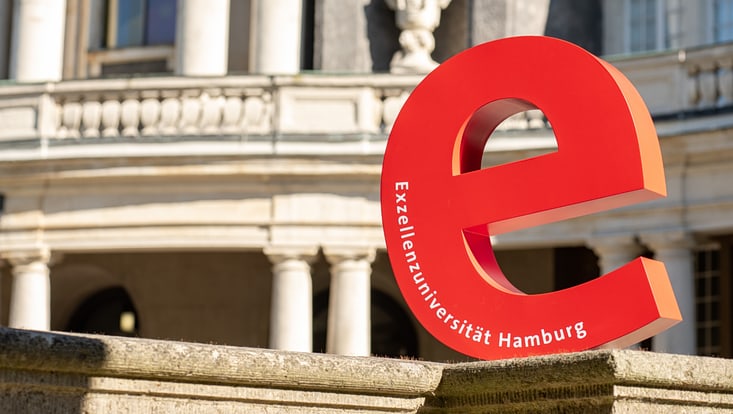Funding research at Universität Hamburg—University of Excellence“There are more viruses in the sea than stars in the universe”
14 March 2022, by Christina Krätzig

Photo: Private
Marine biologist Dr. Luisa Listmann from the Plankton Ecology and Evolution research group at Universität Hamburg is conducting research in collaboration with a colleague from the Helmholtz-Zentrum Hereon GmbH. Seed funding for research is aimed at supporting these kinds of collaborative projects by research institutions in the greater Hamburg region.
As a comparatively small and, in some places, shallow sea, the Baltic is particularly susceptible to environmental changes resulting from human activities, such as over-fertilization or climate change. “We often don’t know exactly how the ecosystem will change in the future and what effects those changes themselves will bring,” explains Dr. Luisa Listmann from Universität Hamburg.
Together with Dr. Jana Hinners from Helmholtz-Zentrum Hereon GmbH in Geesthacht, she is now researching the factors that effect phytoplankton, tiny plants that float near the surface, in the Baltic Sea. This phytoplankton is eaten by the tiniest living creatures, zooplankton, which in turn, are eaten by fish and whales. This unprepossessing plant material also produces a massive proportion of the earth’s oxygen, more than 50 percent. “That’s why it is so important for many researchers from many disciplines to know how this plankton will develop in the future,” explains Listmann.
Her interest is focused on 2 factors in particular, which are still only poorly understood in the Baltic. The level of consumption of phytoplankton by zooplankton, and the appearance of viruses which may cause plankton to die. “Most people don’t know that viruses are everywhere in the sea as well,” she clarified, “there are more viruses in the sea than stars in the universe.”
For their research, they are taking water samples from the sea, which they then prepare in the laboratory. They have filtered viruses and zooplankton from part of their samples. The development of phytoplankton in the various comparative samples then show what effect these two factors have on the plant material.
The biologists then feed data they obtain from their experiments into a computer model, which provides information about the future development of plant materials. “Extrapolating this data in the future should form part of a larger German Research Foundation (DFG) funded project. Universität Hamburg seed funding provides us with the opportunity to verify whether our experiments are providing the right kind of information, and whether we have adapted the available computer models correctly for our research. And we can examine the status quo in the Baltic over the period of a year.” furthered Listmann.
PIER Hamburg Seed Fund is intended to foster interinstitutional preparation of joint research project applications, for example through preliminary studies or preparatory workshops. Postdoctoral researchers at partner institutions in PIER Hamburg are also entitled to make applications. Universität Hamburg is currently funding research projects in the subject areas of climate-friendly mobility, and coast and climate as part of PIER Hamburg. A share of the funding comes from the Excellence Strategy of the Federal and State Governments.


